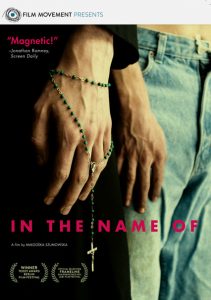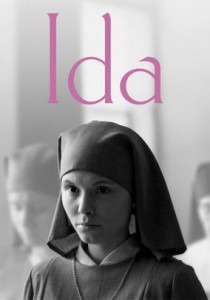In the Name of-2013
Director Malgorzata Szumowska, Mateusz Kościukiewicz
Starring Andrzej Chyra
Scott’s Review #1,159
Reviewed July 8, 2021
Grade: B+
In the Name of (2013), not to be confused with In the Name of the Father, a 1993 film starring Daniel Day-Lewis, is a Polish independent LGBTQ+ genre film directed by a female, Malgorzata Szumowska.
I point out the gender only because the subject matter skews heavily towards male homosexuality which is an interesting one for a female to tackle.
Szumowska does so with gusto providing wonderful cinematography and quiet dialogue.
She casts her husband, Mateusz Kościukiewicz, in the central role of an outsider who stirs up the sexual feelings of a priest struggling with his long-repressed sexuality.
If one looks carefully, each character struggles with conflict and self-acceptance in some way, restless and hungry for peace of mind and satisfaction.
We wonder if any of the characters will ever find this.
The priest in question is played by Andrzej Chyra. It’s revealed that Adam joined the House of God at age twenty-one to escape issues he wrestled with concerning his sexuality. He has spent his life running away from his true self.
Now in his forties, he currently leads a rural parish having been transferred from the lively city of Warsaw, and is still tormented by desire. To make matters even more difficult he mentors troubled young men with lots of testosterone.
When Adam attempts to help troubled teen Lukasz (Kościukiewicz), long-suppressed feelings begin to surface as the men grow closer. A townsperson catches wind of possible shenanigans and Adam is transferred yet again to another location. This has happened before. But, will Adam and Lukasz have a chance at happiness if they play their cards right?
The obvious comparison of In the Name of is to Brokeback Mountain (2005) which set the standard and paved the way for many LGBTQ+ films to be made.
All of Adam’s and Lukasz’s dalliances, and there are romantic suggestions, but nothing animalistic is secretive. Both men are repressed but are at different stages of life.
I can’t say In the Name of hits the mark in this regard because the film is less about a male romance than about the characters being unhappy. It’s not until the end of the film that any blossoming develops between Adam and Lukasz.
I wanted more meat between the characters, pun intended but was left knowing almost nothing about Lukasz specifically.
I also yearned for more backstories from three supporting characters. Ewa (Maja Ostaszewska), an attractive local woman, flirts with Adam and the coach on occasion and drinks too much, later regretting her actions.
How does she happen to be in the town and why is she without a man already? Is the coach gay or straight? It is suggested he is gay but this remains unclear.
Finally, Blondi is a bleached blonde troubled boy played by Tomasz Schuchardt. He beds another boy and senses Adam’s sexuality filling Blondi with venom.
I wanted to know more about Blondi.
Despite these slight yearnings for more the film is very good.
Chyra does a terrific acting job in the main role of Adam and easily wins over the audience who will root for his happiness. During a great scene, the typically reserved Adam explodes with self-deprecating rage while on a video call with his sympathetic sister.
He struggles for self-acceptance that many of the LGBTQ+ community can relate to.
I sense that having seen In the Name of when it was originally released in 2013 would have made the experience even more powerful.
By 2021 the cinema world has been saturated with films containing similar story points and religious conflict issues so that appears a commonality rather than originality.
But I’ll never complain about too many LGBTQ+ films being made.
Nonetheless, I thoroughly enjoyed the film and recommend it to anyone seeking a quality character-driven experience.



